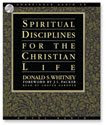Foreign grey skies littered with unfamiliar birds and birds of steel, along with the dreams and imaginations of the young brave men of war were the witness of all of the things they carried. As Atlas is depicted holding the weight of the world on his shoulders and we may interpret the symbolism as man’s burden of being caretaker of the world, The Things They Carried paints vivid pictures to show and teach us; the futility of the hump, the correlation between the tangible and intangible things that they carried and the logistics of war.
The hump of which Tim O’Brian writes is a long arduous walk from village to village that the soldiers make day to day, symbolically represents the unrealized dreams, the burden of the ever present weight of terror, and the aimlessness of war. Lieutenant Jimmy Cross humps his love for a girl who may never return his affection is a long journey that may never come to realization. He even gives up on her in the end. Humping a war zone could almost be likened to the terror of walking that dark and scary hall way as a child. O’Brian writes that they were like animals, marching endless, from one village to another, winning nothing and losing nothing; (O’Brian 602) drawing the gross parallel of the futility of war.
There is a strong correlation between the things that the men carried on their backs and the things they carried in their hearts and minds both of which symbolizes a great weight. Ted Lavender carried extra ammunition and drugs which shows the great weight of fear he carried inside of himself; not unlike the other men in the platoon. After writing about the ways the men would deal with the war by using hard vocabulary, O’Brian writes, “They were tough. They carried all the emotional baggage of men who might die. Greif, terror, love, longing-these were intangibles, but the intangibles had their own mass, and specific gravity, they had tangible weight. They carried shameful memories. They carried the common secret of cowardice barely restrained…” (O’Brian 604-05) O’Brian demonstrates throughout the story that the most important thing for the men is concealing their fear. That in and of itself is a heavy burden to carry.
The way in which the author chooses to write bears symbolism worth mentioning and may carry the story’s theme of the misery of war. The Things They Carried is written in a logistical form cataloging what the men carried and weight of each item brings to the attention of the reader that the war zone is real. Though we as civilians may not consider what counting the cost of war may be, the powers at be count the cost of war. “…and for all the ambiguities of Vietnam, all the mysteries and unknowns, there was at least the single abiding certainty that they would never be at a loss for things to carry.” (O’Brian 602) This is all too reminiscent of the toy soldier-dispensable and many.
As I think about the many humps that I make under my familiar skies of degrading colors of blues, pinks and oranges, the things that I carry may be things of solace; music, my wedding band, and my camera. I may carry in my heart hopes for myself and my family. Tim O’Brian, with his unhappy characters causes the reader to peer beyond the iron curtain into the misery of war and perhaps, as I did, consider the blessings of the day.
O’Brian, Tim. “The Things They Carried.” Literature An Introduction to Fiction Poetry, Drama, and Writing. Ed. Kennedy, X.J. and Dana Gioia. Longman: NY, 2010. 595-607.







